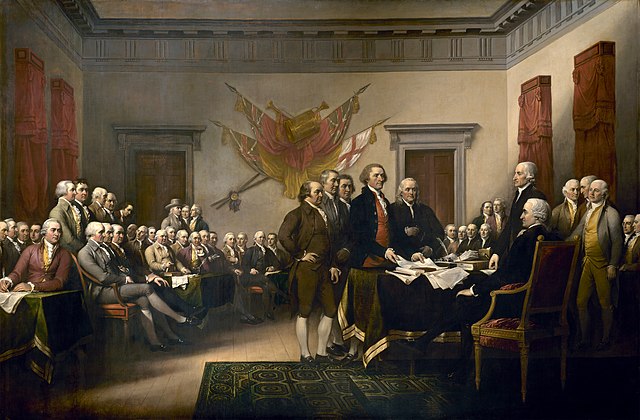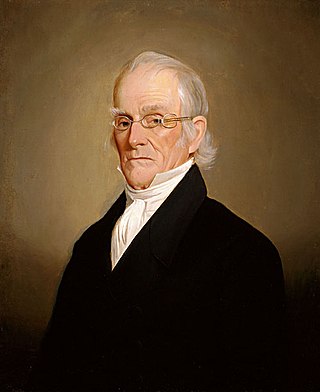The Fourth North Carolina Provincial Congress was one of five extra-legal unicameral bodies that met beginning in the summer of 1774 through 1776. They were modeled after the colonial lower house (House of Commons). These congresses created a government structure, issued bills of credit to pay for the movement, organized an army for defense, wrote a constitution and bill of rights that established the state of North Carolina, and elected their first acting governor in the fifth congress that met in 1776. These congresses paved the way for the first meeting of the North Carolina General Assembly on April 7, 1777 in New Bern, North Carolina.[6] The Fourth Congress met in Halifax from April 4 to May 14, 1776. Samuel Johnston served as president, with Allen Jones as vice-president.[6][7][4][8][1][2]
| Fourth North Carolina Provincial Congress (1776) | |||||
|---|---|---|---|---|---|
| |||||
 President Samuel Johnston | |||||
| Overview | |||||
| Legislative body | North Carolina Provincial Congress | ||||
| Jurisdiction | North Carolina, United States | ||||
| Meeting place | Halifax, North Carolina | ||||
| Term | 1776 | ||||
| Members | 153 Delegates (35 counties, 8 Districts) | ||||
| President | Samuel Johnston[1] | ||||
| Vice-President | Allen Jones[2] | ||||
| Secretary | James Green Jr.[3][4] | ||||
| Assistant Secretary | James Glasgow[4][5] | ||||
| Clerk | John Hunt[4] | ||||
| Sessions | |||||
| |||||
Legislation

The delegates authorized their representatives to the Second Continental Congress to vote for the Declaration of Independence, including Joseph Hewes, William Hooper, and John Penn. The 83 delegates present on April 12, 1776 adopted the Halifax Resolves. On April 13, 1776, the delegates formed a committee to start working on a North Carolina Constitution, which was ratified in December 1776 by the Fifth North Carolina Provincial Congress. In April, 1776, the congress passed a resolve to move loyalists while allowing them to dispose of their property. Later in May 1776, the congress passed a resolve to confiscate the property of those taking up arms against the United States.[9][10][11]
Members
Summarize
Perspective














The following list shows the names of the delegates and the counties or districts that they represented:[4][8][12]
Notes:
- Possibly the father of William Murfree
- Campbellton became part of Fayetteville in 1784
- Willie Jones had to leave the congress because he was elected by the Continental Congress to serve as the Superintendent of Indian Affairs. John Webb replaced him.
See also
References
Further reading
Wikiwand - on
Seamless Wikipedia browsing. On steroids.